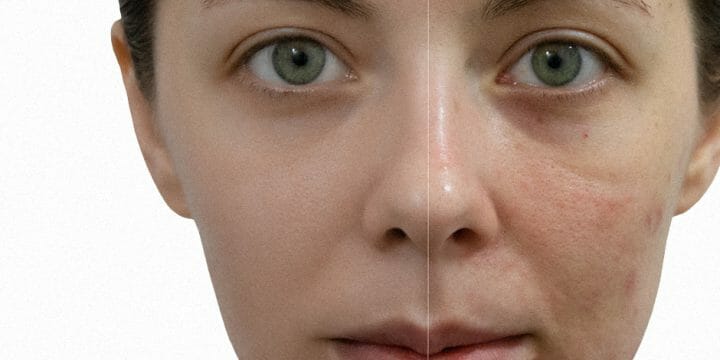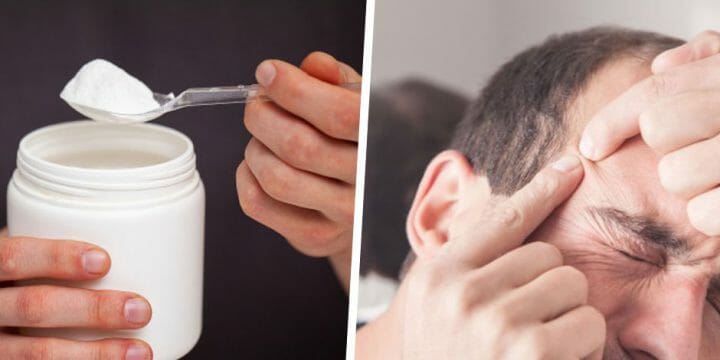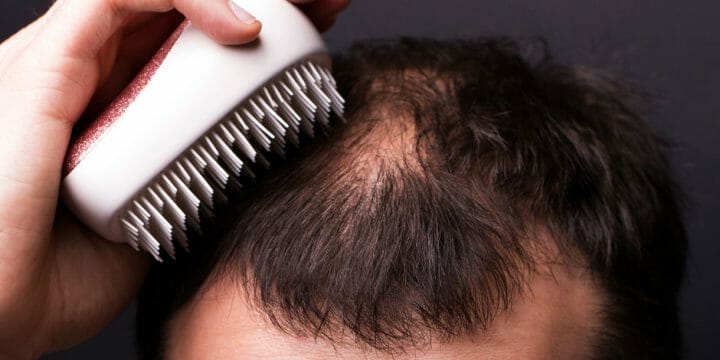In a recent conversation with an endocrinologist specializing in men’s health issues, he emphasized low testosterone as a common cause of premature ejaculation.
I know that anxiety and depression play a role in rapid climax, but I also wanted to find out if there’s more research linking premature ejaculation and low testosterone.
So, I spent the day with the endocrinologist reviewing studies exploring this connection.
Here are our insights.
Quick Summary
- Low testosterone is linked to premature ejaculation (PE), with treatment potentially addressing both direct and indirect causes.
- Testosterone replacement therapy (TRT) has been shown to significantly improve ejaculation time in testosterone-deficient patients.
- A study in the Andrologia journal reported a 4.8-fold increase in ejaculation time post-testosterone replacement therapy.
- Based on cases I've encountered, enhancing testosterone levels can markedly alleviate symptoms of premature ejaculation in many men.
Can TRT Address Premature Ejaculation Due to Low Testosterone?

Yes, low testosterone can cause premature ejaculation, both directly and indirectly.
Research in the Journal of Sex and Marital Therapy reveals that low serum testosterone is a common thread among patients grappling with rapid climax [1].
Many of these studies and treatments are often discussed and provided by the best online TRT clinics.
The Andrologia journal highlights a study where testosterone-deficient patients saw a remarkable 4.8-fold increase in ejaculation time post-testosterone replacement therapy [2].
This is not definitive proof, but it does show a strong correlation between low testosterone and premature ejaculation (PE).
Contradictorily, the Journal of Sex Medicine presents studies showing mixed results, especially in males aged 25 to 40 [3].
5 Main Causes

Premature ejaculation occurs because of several factors. Below are some of them.
1. Hormonal Imbalance
Research in the World Journal of Men's Health links rapid climax to hormonal issues like hyperthyroidism, where too much thyroid hormone is produced [4].
Treating low testosterone and hyperthyroidism can reverse PE.
Additionally, a study published in the Interdisciplinary Toxicology journal indicates that some drugs commonly used for pain relief, like tramadol, can lower testosterone levels and subsequently improve the symptoms of PE [5].
2. Neurological Imbalance
Neurotransmitters, the brain's chemical messengers, play a role in PE. Utrech University research shows low serotonin levels, crucial for ejaculation control, often lead to rapid climax [6].
Conversely, according to the endocrinologist, high serotonin levels can delay it.
3. Penile Sensitivity

The University of California points out that men with heightened penile sensitivity often respond quicker to stimulation, increasing their likelihood of facing PE issues [7]. Testosterone plays an important role in this as well.
4. Genes
Studies also show that medical problems like hypersensitive nerves in the penis can be genetic [7].
Variations in the androgen receptor gene have also been shown to influence the relationship between testosterone levels and PE, pointing to a genetic factor in the development of this condition [8].
5. Anxiety and Depression
Studies have linked psychological factors to premature ejaculation (PE).
The Primary Care Companion for CNS Disorders associates performance anxiety with sudden changes in ejaculatory control [9].
The Medicine journal ties anxiety and depression, often related to low testosterone, to PE [10].
Additionally, research in Translational Andrology and Urology suggests mental health issues, including depression, heighten the risk of PE and erectile dysfunction [10].
The impact of emotional trauma on PE and testosterone is also noted in the Psychoneuroendocrinology journal [11].
How Improving Testosterone Treats PE

Increasing the testosterone volume in your body does the following to help your PE problem, according to the endocrinologist:
1. Fixes Erectile Dysfunction
According to researchers, low testosterone leads to erectile dysfunction, which also makes them likely to experience PE problems.
Therefore, scientists assert that treating erectile dysfunction, which may involve boosting low testosterone levels, could also treat premature ejaculation [12].
2. Fixes Low Sex Drive
Treating libido, which is associated with low testosterone, might fix premature ejaculation.
This is especially the case for those with secondary or acquired premature ejaculation.
“PE is connected to low testosterone, and testosterone is related to sex drive; having a lower libido may be connected with PE. If somebody’s sex drive is low, then that could be a reason why they may have problems with PE.”
- Dr. Amin Herati, John Hopkins
3. Improves Serotonin Levels

As we’ve seen, one potential way to delay premature ejaculation is by boosting your serotonin levels.
And because studies are showing that testosterone treatment can improve serotonin levels, T booster treatment options might indirectly fix premature ejaculation [13].
Treatments for PE
Besides medication, below are some treatment methods for premature ejaculation:
The Start and Stop Method: This is where you stop sexual stimulation right before orgasm to delay ejaculation [14].
The Squeeze Method: Here, rather than halting, you gently squeeze the penis until the urge to ejaculate ends.
Varicocelectomy: A surgical procedure to remove varicose veins in the scrotum has been observed to increase testosterone levels and improve PE symptoms in men with this medical condition, based on Balkan Medical Research journal findings [15].
Ways to Increase Your T levels Naturally

Below are a few ways to boost your T levels naturally.
1. Vitamin D
According to a Hormone and Metabolic Research study, exposure to the sun and consuming foods like fatty fish and mushrooms, which are rich in vitamin D, can boost your testosterone [16].
2. Zinc
The Biological Trace Elements Research journal underscores that beans, nuts, and whole grains, packed with zinc, are key players in regulating testosterone levels [17].
3. Protein Diet
Based on my experience with clients, a diet rich in protein not only supports muscle growth but also enhances stamina, potentially helping you last longer in bed.
4. Exercise

In my coaching career, I've seen firsthand how weight loss, weight training, and high-intensity exercises can dramatically increase testosterone levels, thereby enhancing libido and overall sexual health.
5. Natural Testosterone Boosters
As we’ve mentioned, boosting testosterone might help with premature ejaculation and erectile dysfunction issues.
Testosterone-boosting supplements consist of natural, science-backed herbs and nutrients that support the body’s natural testosterone production.
FAQs
Are Testosterone Levels Affected by Ejaculation?
No, testosterone levels are not affected by ejaculation. Studies show that they don't affect serum T levels [16].
Can Low Testosterone Cause Weak Ejaculation?
Yes, low testosterone can cause weak ejaculation by releasing less seminal fluid. That's because the seminal vesicles and prostate need testosterone to function properly.
Can Testosterone Boosters Help with ED?
Testosterone boosters can’t help with ED if you already have normal testosterone levels. Low testosterone levels are linked to erectile function, but they don’t necessarily cause ED. Other factors and medical conditions can be at play. That means you'll need to address other causes too.
References:
- https://pubmed.ncbi.nlm.nih.gov/9292835/
- https://onlinelibrary.wiley.com/doi/10.1111/and.13452
- https://pubmed.ncbi.nlm.nih.gov/18399946/
- https://www.ncbi.nlm.nih.gov/pmc/articles/PMC8761237/
- https://www.ncbi.nlm.nih.gov/pmc/articles/PMC7247366/
- https://www.sciencedaily.com/releases/2008/10/081007132509.htm
- https://www.sciencedaily.com/releases/2009/05/090527130838.htm
- https://www.ncbi.nlm.nih.gov/pmc/articles/PMC5838858/
- https://www.ncbi.nlm.nih.gov/pmc/articles/PMC4318671/
- https://www.ncbi.nlm.nih.gov/pmc/articles/PMC5008563/
- https://www.sciencedirect.com/science/article/abs/pii/S030645301730882X
- https://www.urologyhealth.org/urology-a-z/p/premature-ejaculation
- https://www.biologicalpsychiatryjournal.com/article/S0006-3223%2814%2900709-4/fulltext
- https://www.ncbi.nlm.nih.gov/books/NBK547551/
- https://www.ncbi.nlm.nih.gov/pmc/articles/PMC7161614/
- https://pubmed.ncbi.nlm.nih.gov/21154195/
- https://pubmed.ncbi.nlm.nih.gov/21671089/
About The Author
You May Also Like






